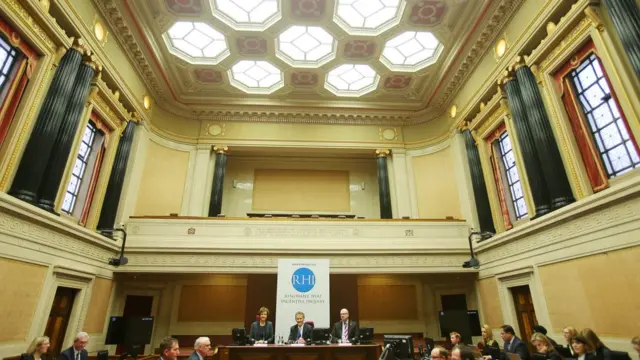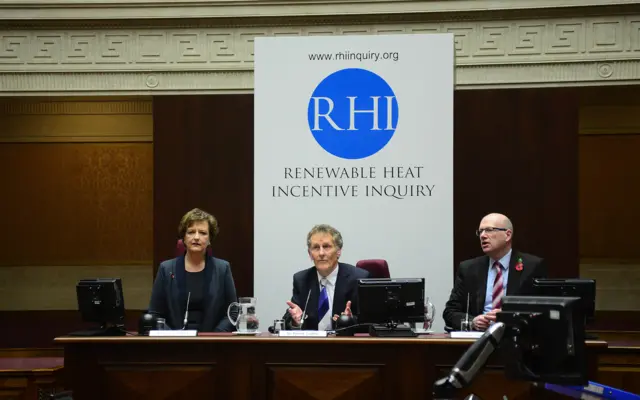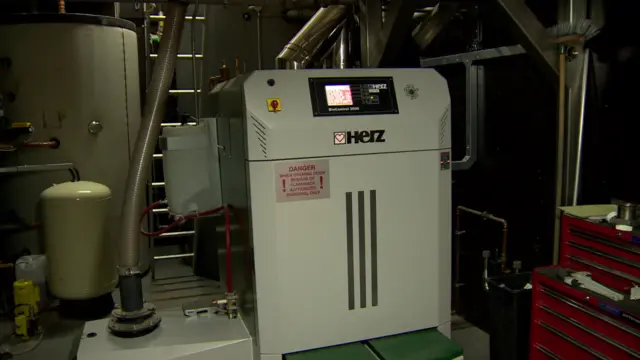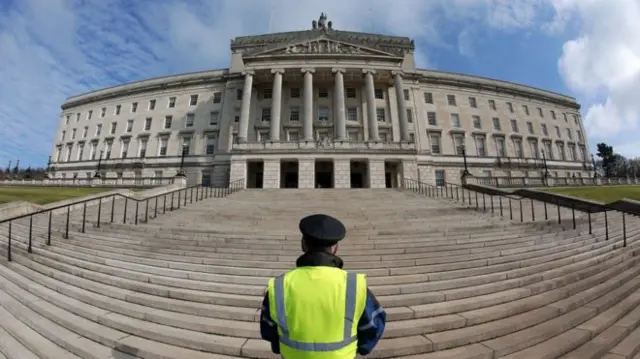What happened yesterday at the RHI Inquiry?published at 09:52 GMT 23 February 2018
 BBC News Northern Ireland
BBC News Northern Ireland
Former enterprise minister Arlene Foster and a senior civil servant had sharply diverging memories about a series of meetings when the RHI scheme was being set up, the inquiry heard.
 Image source, Press Eye
Image source, Press EyeIn her written evidence to the inquiry, Mrs Foster has claimed that advice she received led her to believe that an ongoing subsidy scheme model for the RHI scheme gave the "highest potential heat output at the best value", when in fact another option would've been better in that regard.
But Mrs Hepper told the inquiry that she has a "clear recollection" of the meeting she had with the minister at which the issue was discussed.




